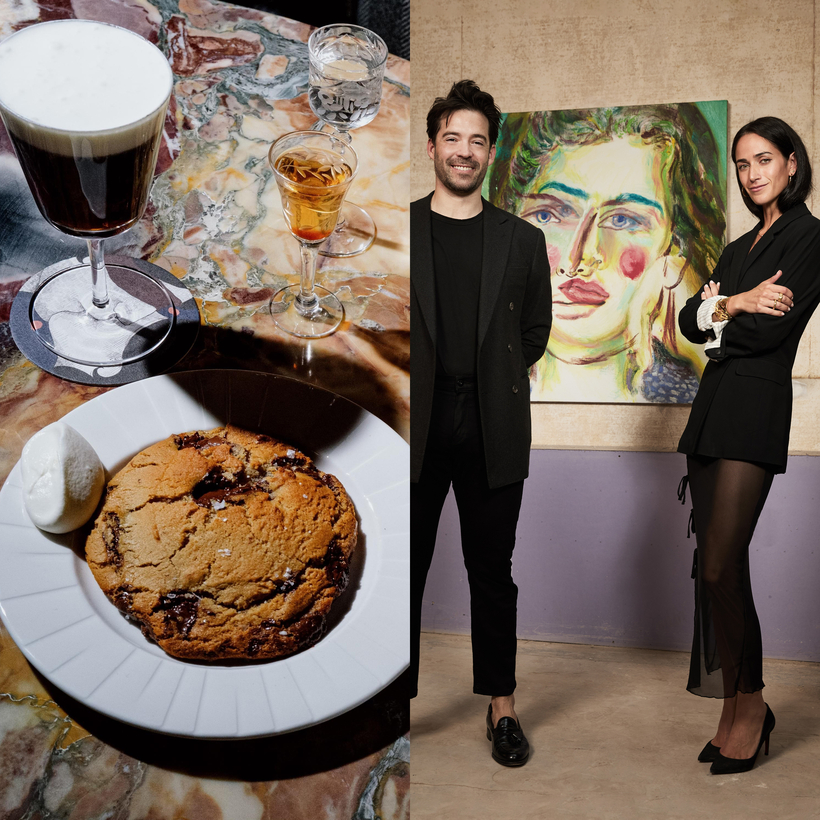Margot Hauer-King and Emmet McDermott didn’t plan on becoming business partners. “Full disclosure, we were set up,” 31-year-old Hauer-King tells me. On a blind date in the spring of 2023, the pair quickly found themselves deep in conversation—only it wasn’t romantic, unless one considers discussing restaurant and bar wallpaper seductive. Spending the entire day together, Hauer-King and 37-year-old McDermott realized they shared a vision for a new kind of nightlife space in New York.
“I don’t want to go clubbing much anymore,” says Hauer-King, “but I am too often at a dinner on a Friday night where the meal ends and everyone says, ‘What should we do?’”


